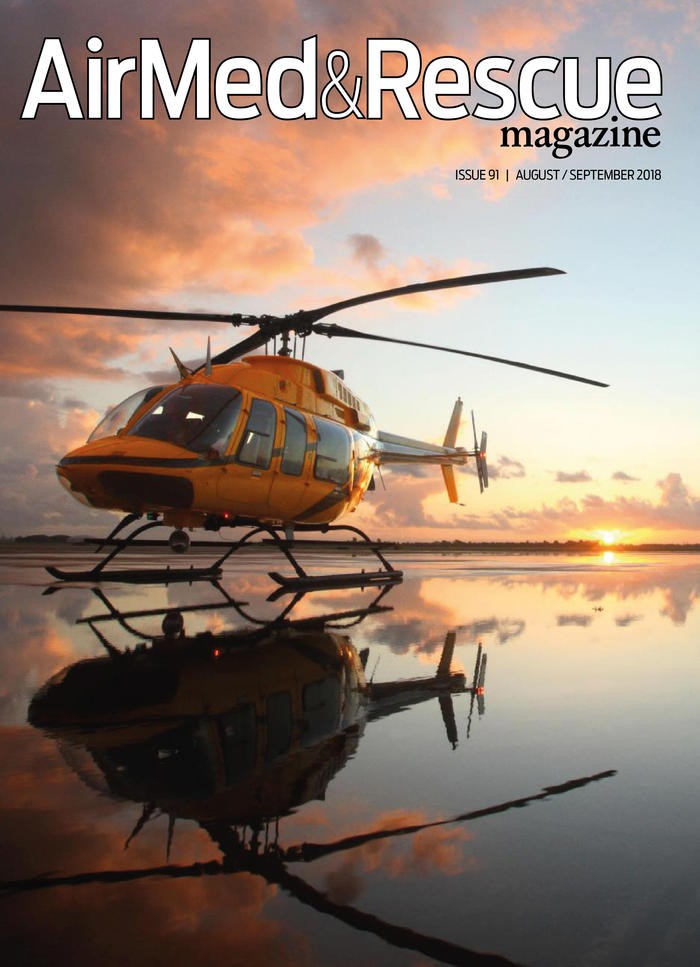Aeromedical transport training in Bangkok
2569.jpg)
Run by Dr Terry Martin and co-ordinated by Asian Assistance, the second Clinical Considerations in Aeromedical Transport (CCAT) course to be held in the region took place in June at Rangsit University in Bangkok, Thailand
The ever-increasing number of visitors to Asia has amplified the demand for aeromedical transport across the region, and courses such as the CCAT training has brought, and will bring, much benefit to the standards and quality of care available. The 10-day event started with the foundation level phase, but also included a three-day advanced component for the graduates of the 2017 course. Both phases were directed and taught by Dr Terry Martin, the founder of the CCAT training in the UK, while five local highly experienced guest speakers from South-East Asia helped to deliver the syllabus. Together, they shared their experiences on providing high-quality care in the air for complicated cases such as major trauma, critically ill patients and paediatric and neonatal transfers by both fixed-wing air ambulance and HEMS.
Additional activities included visits to Medical Wings Department at Don Mueang Airport and Samitivej Srinakarin Hospital. The hospital medical transport team introduced and demonstrated the Extracorporeal Membrane Oxygenation (ECMO) transport service and patient loading/unloading into the HEMS helicopter. Delegates also received hands-on practical skill demonstrations, simulated emergency procedures in flight, and received competency training on air transportable medical equipment.
Participants travelled from across Asia to attend the event, including Thailand, Myanmar, Nepal, Singapore, Cambodia, Vietnam, Indonesia, Philippines, Malaysia and South Korea, and all received an accredited CCAT Training Certificate in partnership with Rangsit University. Dr Yin, Chief Medical Officer of Asian Assistance, stated: “The course was challenging to run but turned out to be highly successful, with a greater number of participants than last year. Feedback from the participants has been overwhelmingly positive. We are pleased to be the centre in South East Asia for organising such significant and respected educational experience.”
Dr Terra, one of the participants, stated “This CCAT course focused intensively on systematic critical thinking. The group discussion allowed us to share our knowledge and experiences in aeromedical transport under the supervision of the expert in this field. Increased knowledge on the dos and don’ts are one of the things that we carried out after the completion of the training.”
Another participant, Dr Feemuchang, noted: “The professional atmosphere and the great teaching staff made my CCAT training a big success. Not only could I develop my medical knowledge further, it also enabled me to meet interesting people from several countries.”
In his summing up on the final day of teaching, Dr Martin described the Bangkok course as a great event, congratulating the delegates for their enthusiasm and dedication to passing each stage of the training.


August 2018
Issue
In this issue:
Night riders - The ever-increasing availability of night vision imaging systems onboard helicopters and the regulations surrounding them
Electric avenue - Electronic flight bags are changing how pilots work
I, robot helicopter - The latest generation of helicopters are lighter, faster and better equipped
Costs of medical transport in Florida come under scrutiny
Aeromedical transport training in Bangkok
AirMed&Rescue Magazine attended the 2018 annual Air Centric Personnel Recovery Course (APROC) at Gilze-Rijen air base, The Netherlands
Focus on helicopter evacuations in Nepal
Working to the limit -Fatigue management in the world of international medical repatriations
Creating the right culture -Bruce Webb, Airbus pilot, offers his thoughts on leadership and the culture of safety for crewmembers
Profiles
Capital Air Ambulance
AIUT Alpin Dolomites
Airbus Helicopters
Dr Terry Martin
Dr Terry Martin is former RAF doctor and helicopter pilot with a broad background in anaesthetics, ICU, emergency medicine, general practice, and aviation medicine. He has worked in every aspect of civilian and military fixed-wing and helicopter aeromedical transport since the 1980s, including as director of the Otago University aeromedical retrieval and transport courses until June 2008. He is currently a consultant intensivist in England and directs the ‘Clinical Considerations in Aeromedical Transport’, ‘Medical Emergencies in Flight’ and the ‘Helicopter Medical Flight Crew’ courses in the UK.